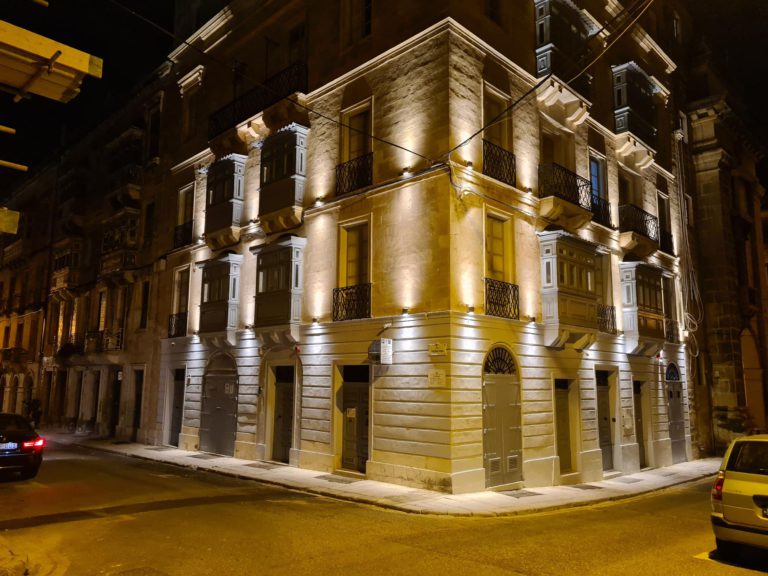The question of Malta’s attractiveness to foreign investors made headlines this week as the annual EY Attractiveness Survey generated a flurry of discussion on the role of Malta’s corporate tax regime in the wider economic context, instigated by the finding that possible changes to one of Malta’s main attractions is the top concern for respondents.
Minister for Finance Clyde Caruana has sought to downplay such concerns by saying that Malta “will not jump the gun” given that the international appetite for setting a minimum corporate tax rate has waned.
Momentum for inter-governmental agreement through the OECD on bold plans to introduce a global minimum corporate tax rate was disrupted in brutal fashion by Russia’s invasion of Ukraine, and tax harmonisation at EU level, already a seemingly remote possibility, only became more unlikely as the largest mobilisation of troops since World War II dramatically altered the bloc’s agenda.
However, other commentators are emphatic that reform is a question “of when, not if”, and Minister Caruana acknowledged that as long as other countries’ finances remain in disarray, the issue will remain a pertinent one.
“The argument keeps cropping up because most of the big [EU] countries – I wouldn’t say they are on the verge of going bankrupt – but their debt to GDP levels are quite worrying,” he said at the EY Futures Realised conference last week.
Some, like the Opposition and The Malta Chamber, have argued that Malta needs to place greater focus on the other elements making up its attractiveness, by investing in overcoming its skills shortage, improving connectivity, and nurturing the creation of new economic sectors, among others.
Speaking to BusinessNow.mt, leading economist Gordon Cordina, who currently serves as chairperson at Bank of Valletta, agrees that “it is essential for the country to invest in the other elements needed for competitiveness”, arguing that Malta “cannot rely on tax matters to make up for other shortcomings”.
He also highlights the double-edged nature of attractiveness defined by tax competitivity: “Tax as an element of competitiveness starts becoming problematic if it creates distortions between different sectors, and if it generates concerns at the international level. It is also an issue when it attracts investment that is based purely on tax reasons, and not to undertake fundamental economic activity in a country.”
For Dr Cordina, it is clear that tax needs to be one of a number of competitiveness factors in an economy. “It cannot be the single nor the main element of competitiveness in the longer term,” he says.
“In the case of Malta, tax competitiveness will serve the economy well if presented within a package of measures to attract investment and international business. It is definitely needed for a number of key sectors which are adding value to the Maltese economy, but also, in a number of respects, to the EU economy as a whole.”
Asked to expand on the value of tax competitiveness to the European economy, the BOV chairperson says that the EU project was never about “creating uniform territories of economic activity”.
What it is really about, and what it should continue aiming for, he says, is the enabling of different territories to specialise in areas where they can be more effective, according to their potentials and needs.
“It is only in this way that the best value for the EU as a whole can be attained,” he says. “For example, islands like Malta and Cyprus may be most suited for tourism, smaller scale activities, and high value-added ones such as financial services.”
He continues: “There is therefore scope to develop such territories for these activities, including through taxation systems which would encourage them, as otherwise such business could be lost for the EU as a whole.”
In Malta’s case, Dr Cordina explains, it has, over decades, built an export-oriented economy based on a few key sectors that have relatively little dependency on each other and which can attain efficiency at relatively small size.
“This allows for a balance between diversification to mitigate against external shocks and attaining sufficient competitiveness in each sector,” he says. “Tourism, high value-added manufacturing, and high value-added services all have a key role to play in this equation.”
Due to the small size of the domestic market, foreign direct investment (FDI) is a necessity, although the particular character of such investment has changed over the years.
“Initially, it was required to source capital, but nowadays, access to technologies, markets, and human capital are more important.”
Malta’s advantageous tax regime is “key” to attract investment and generate business, but should never be considered in a vacuum, just as boardroom decisions on relocation or expansion to another country are not based on tax benefits alone.
Predictability, argues Dr Cordina, is just as important, since investors would need and expect to reap benefits over a number of years. In fact, Malta’s macroeconomic stability has long been lauded, achieving a perfect score in this metric in the Global Competitiveness Index for 2019.
“Low taxes and the high visibility afforded by predictability are desirable in any economy if underpinned by revenues generated by high productivity and furthermore sustained by efficiency and effectiveness in public expenditure,” he says.
Malta should therefore sustain its efforts in favour of tax sovereignty, while taking steps to render it more sustainable over time by addressing elements within it which may be raising concerns.
“Taxation policies should of course not be used to endorse cross border evasion and crime,” concludes Dr Cordina, “but respect for the values of proportionality and subsidiarity must be maintained, especially in tax matters – especially in challenging times.”
Featured Image:
Tyler Calleja Jackson
Self-employed, employees and companies contribute €2.1 billion in 2023
Parliamentary data reveals five-year growth trends in fiscal contributions
MFSA concludes review of Crypto-Asset Service Providers following MiCA implementation
The Authority provided clear expectations and guidance to address certain concerns.
Malta Development Bank to launch schemes supporting sustainable development and creative sector
In 2024, the MDB launched the SME Guarantee Scheme and the Guaranteed Co-Lending Scheme






